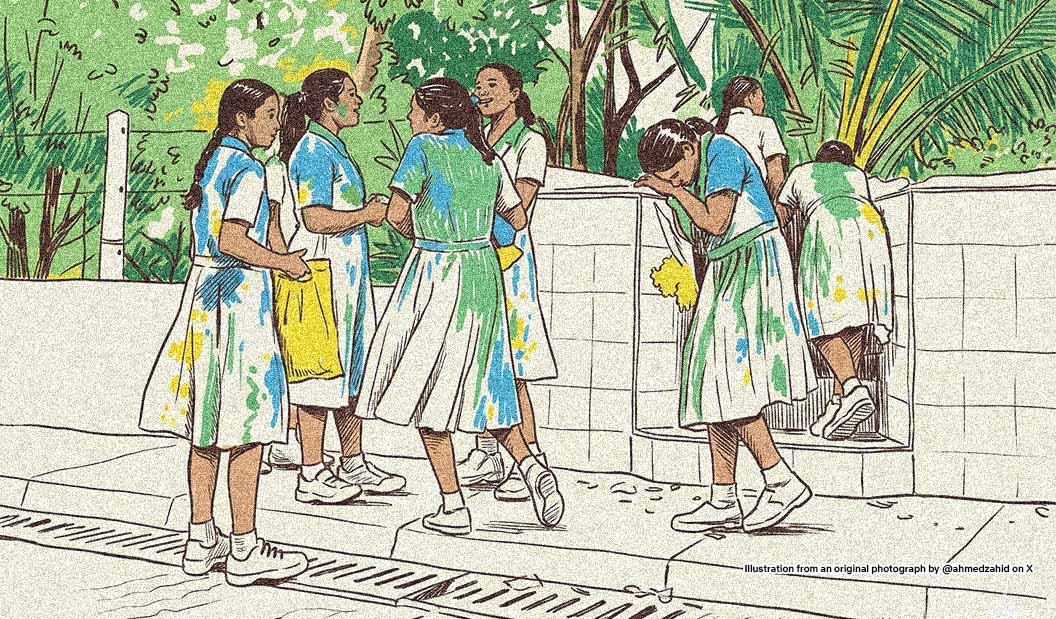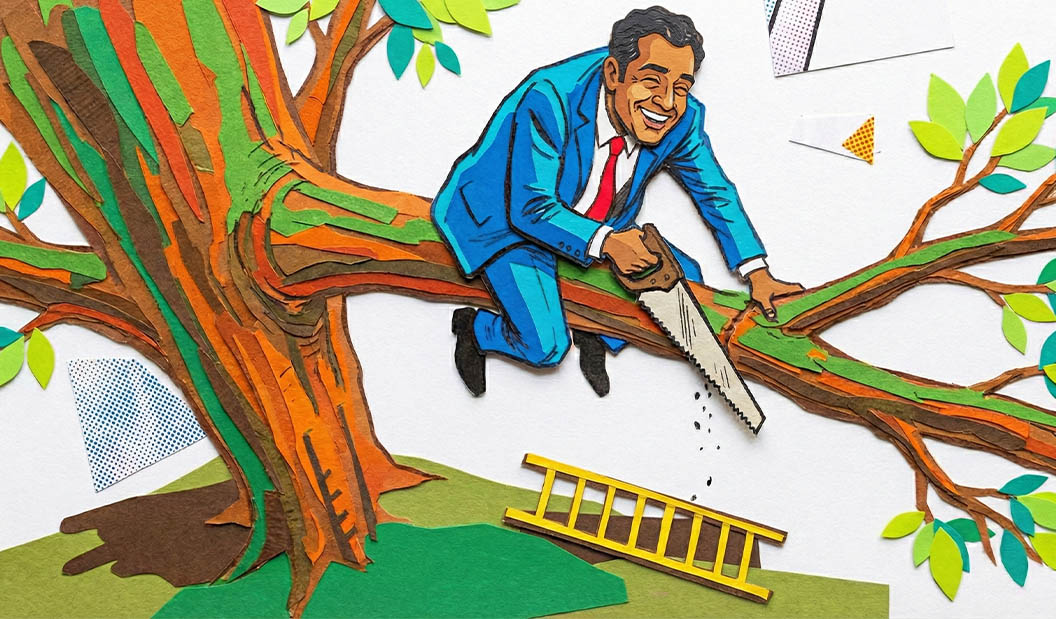The streets of Malé are alive with grief and rage. After a young woman was found gravely injured on a rooftop under suspicious circumstances on 18 April, anger has erupted across the Maldives. She now fights for her life abroad, while citizens — especially young women — demand accountability. Yet instead of solidarity, female protestors have been met with harassment, belittlement, and online abuse. The case has stripped bare the entrenched misogyny that not only allows violence but actively silences women’s voices. As the world marks Sexual Assault Awareness Month, the Maldives offers a searing reminder: the fight against gender violence must also confront the deep hatred that fuels it.
Behind every brutal act of violence is a quieter process — the steady nurturing of hate, entitlement, and dehumanization. If we want to stop the violence, we must understand where it begins.
How Misogynistic Attitudes Take Root
The Maldives is not an outlier. Across the world, violence against women stems from cultural systems that teach boys dominance and condition girls for subservience. Misogynistic attitudes are reinforced through media, schoolbooks, casual conversations, and institutions. The statistics are grim. UN Women reports globally, almost one in three women have experienced physical and/or sexual violence at least once in their life and this violence is often perpetrated by current or former intimate partners.
A troubling manifestation is the ‘incel’ (involuntary celibate) subculture. Within incel communities, rejection by women is seen not as a personal experience but as an unforgivable betrayal. “Red Pill” ideology, heavily influential in these spaces, embraces harsh hierarchical gender views, using pseudoscientific theories of evolutionary psychology to justify the control and dehumanization of women (Ging, 2019).
Understanding the incel phenomenon is crucial: it shows how normalizing toxic masculinity creates a pipeline from frustration to violence.
Radicalization Online: Echo Chambers of Hate
The internet, meant to connect, has instead become a tool for radicalization. Vulnerable young men find “manosphere” communities that validate and amplify their grievances. Incel forums, in particular, fuel resentment by portraying women as manipulative or inferior.
Social Learning Theory (Bandura, 1977) tells us that young people model behaviors they observe. Online echo chambers reinforce misogynistic ideas, making hatred and violence seem not only acceptable but necessary.
Even worse, boys in their teens — still forming their identities — are prime targets. Emotional vulnerability, loneliness, and social insecurity make them especially susceptible. The digital radicalization pipeline is real, and it has deadly consequences.
Netflix’s Adolescence chillingly portrays how lonely young men, immersed in toxic online spaces, slide into radicalization. The series highlights the psychological grooming that normalizes hatred before it erupts into violence — a vital warning for parents, educators, and policymakers alike.
The Normalization of Misogyny
Misogyny isn’t restricted to extremist forums — it permeates daily life. Popular music, movies, advertisements, and casual jokes often reduce women to objects or conquests, reinforcing the idea that men are owed female attention and control.
Frustration-Aggression Theory (Dollard et al., 1939) explains how unmet desires — like dominance or sexual conquest — can boil over into aggression. When male entitlement is normalized and unmet, frustration turns dangerous.
This cultural saturation makes it harder to see the slow, steady poisoning of societal attitudes. It is everywhere, hidden in plain sight.
Global Wake-up Calls
The Maldives is not alone in its reckoning. Around the world, horrifying incidents underline the same chilling patterns:
- Sydney, February 2025: A 19-year-old attacked a women’s gym after posting misogynistic rants online.
- London, March 2025: A 21-year-old fatally stabbed a female student; investigators found he was active in incel forums.
- Texas, April 2025: Authorities foiled a planned mass shooting targeting women, orchestrated by a young man radicalized online.
In Kenya, a surge in femicides has sparked national protests. In Canada, a mass stabbing at a women’s shelter exposed the deadly influence of online misogyny.
The message is clear: this is not a “foreign” or “other” problem. It’s global — and it’s urgent.
What Must Be Done
Early Education
Preventing violence must start early. Schools must teach both boys and girls about respect, emotional intelligence, consent, and healthy relationships. Social-emotional learning (UNESCO, 2019) programs are proven to reduce aggression and build empathy.
Boys especially need space to unlearn the notion that masculinity requires dominance. Teaching them that vulnerability is strength could profoundly shift harmful gender norms.
Redefining Masculinity
Toxic masculinity damages everyone. Programs must promote healthier models: masculinity based on empathy, cooperation, and respect rather than aggression. Initiatives supporting positive fatherhood, male mental health, and emotional openness are critical (Eisler & Skidmore, 1987).
Influential public figures — community leaders, athletes, musicians, actors — must take a stand. When high-profile men publicly champion equality and reject violence, they reshape societal expectations for millions of young boys.
Fighting Online Radicalization
Tech companies have a duty to stem the flood of misogynistic and extremist content. Platforms must improve content moderation using AI tools to detect hate speech early (EUROPOL, 2020).
Schools must also teach digital literacy — helping young people critically evaluate online narratives and recognize radicalization tactics before falling prey.
Strengthening Legal Protections
Laws against gender-based violence exist in many countries, but enforcement is too often inadequate. Specialized police units, judicial reforms, and survivor-focused victim services are vital.
Governments must run public campaigns that challenge harmful gender norms and champion women’s rights. The media must be a partner in this transformation: portraying women not as props or prizes, but as fully realized human beings.
Supporting Survivors
Survivors need more than sympathy; they need real support. This includes accessible mental health services, legal assistance, and safe housing options. Survivors who are empowered to share their stories not only heal individually but ignite societal change.
Conclusion: A Call to Action
The Maldives is the latest — but not the last — warning. Misogyny festers when left unchecked, growing from online insults into bloodshed.
The fight against violence must begin at the roots: through education, culture shifts, legal reforms, and better digital protections. It is not enough to mourn the victims. We must dismantle the systems that breed hatred.
Change begins in classrooms, living rooms, courtrooms — and online. This is a collective battle we must all choose to fight. And it must start now.




Leave a Reply